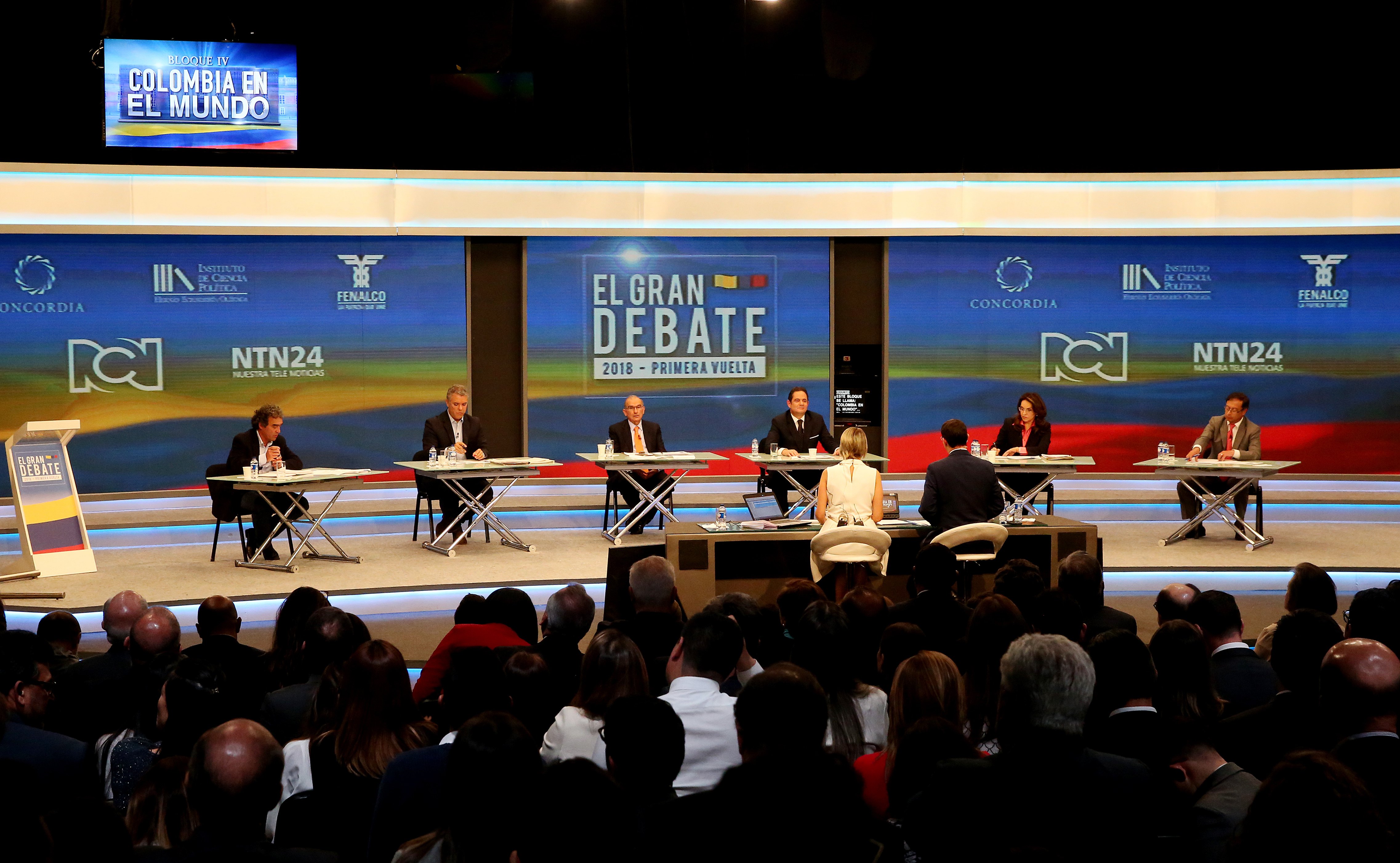
Ties with U.S., Nicaragua dominate first Colombia presidential debate
The election is due to be held on May 27.
Candidates for the upcoming presidential elections in Colombia participated in the first national debate on Thursday and agreed on the need to defend the country's disputed maritime border with Nicaragua, while ties with the Donald Trump-led United States were a bone of contention.
Six candidates cutting across the political spectrum participated in the debate lasting two-and-a-half hours and focused on issues such as peace and the direction of the economy.
"For us, relations with that country (the U.S.) are strategic for security, trade and the fight against drug trafficking, and always have been. So I would sustain extraordinary relations with Trump, like the ones we had with (ex-president Barack) Obama," said former Vice President German Vargas Lleras, the candidate of a right-wing coalition.
Gustavo Petro, of the left-wing Human Colombia Movement, retorted this meant that Vargas would not be fighting climate change.
Another main topic of debate was the dispute between Colombia and Nicaragua over the delimitation of their border in the Caribbean Sea.
The International Court of Justice in Hague had redefined the maritime boundary between the two countries in a November 2012 verdict, which principally affects the waters around the archipelago of San Andres, Providencia and Santa Catalina, the main island territories of Colombia.
Colombia considers the judgment "inapplicable," and argues that the country's boundaries cannot be decided by third parties but only by the Congress.
"I will advocate article 95 of the United Nations Charter, which allows the use of a different mechanism to resolve the border dispute," said Ivan Duque, of the right-wing Democratic Center party of former president Alvaro Uribe.
Duque also said he would try to open a direct channel of communication with Nicaragua and not allow third parties to interfere in deciding borders.
RELATED CONTENT
Viviane Morales of the conservative Partido Somos echoed Duque's sentiments, adding that she would open a review of Colombia's armed forces in order to improve the country's defenses.
Duque also championed a reform in the pension system and said he would not raise the age limit, something on which all candidates agreed.
Both Vargas Lleras and Petro vowed to fight armed groups active in the country, including dissidents of the FARC (Revolutionary Armed Forces of Colombia) - a left-wing rebel group that signed a peace accord in 2016 after a decades-long conflict - and said they were involved in drug trafficking.
"For me, everyone in the current politics are the same, they have benefited from the drug trade and illegal mining," Vargas Lleras said.
Humberto de la Calle - the leading FARC peace negotiator - of the Liberal Party, said he would fight organized crime with judicial and police assets and added that he would not hesitate to extradite Jesus Santrich, a former member of the FARC wanted by the U.S., if it was proved that he had committed crimes after signing the peace agreement.
Sergio Fajardo of the center-left Colombia Coalition clashed with Vargas Llera over the justifiability of state advertising, claiming it was used as a tool to coerce the media into supporting the government, while the latter said it posed no threat to media freedom and was also a common practice in Europe.
The debate was organized by RCN TV and the National Federation of Commerce (Fenalco) in partnership with the Institute of Political Science, the Concordia Institute and channel NTN24.
The election is due to be held on May 27.










LEAVE A COMMENT:
Join the discussion! Leave a comment.